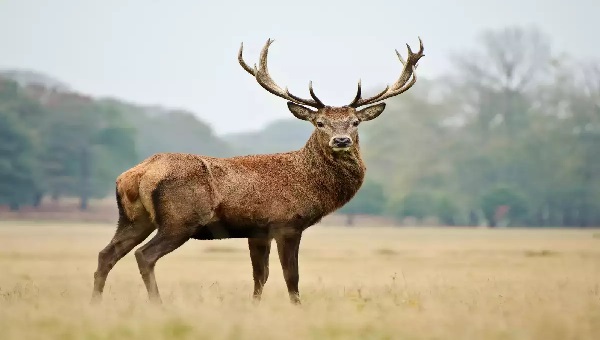Srinagar, Mar. 25-
The hangul, or Kashmir stag (Cervus hanglu hanglu), once roamed the pristine forests of Kashmir in abundance, symbolising the region’s natural beauty and biodiversity. However, today, this majestic species stands on the brink of extinction, facing a myriad of threats that have pushed it to the edge.
The hangul, native to the dense forests and high-altitude meadows of the Kashmir Valley, has been an integral part of the region’s cultural and ecological heritage for centuries. Revered for its striking appearance and graceful demeanour, the hangul was once a common sight in Kashmir’s landscape, symbolising resilience and adaptability.
Unfortunately, the conservation status of the hangul has undergone a drastic decline in recent decades. According to the latest estimates, the hangul population in Kashmir has dwindled to alarming levels, with less than 300 individuals remaining in the wild. This sharp decline has led to the hangul being classified as critically endangered by the International Union for Conservation of Nature (IUCN), signalling its imminent risk of extinction.
Today, the primary habitat for hangul is the Dachigam National Park, located near Srinagar. The park’s dense forests, alpine meadows, and pristine streams offer ideal habitat for hanguls to thrive, making it an invaluable stronghold for the species’ conservation efforts.
Several factors have contributed to the perilous situation facing the hangul population in Kashmir. Habitat loss and fragmentation due to human encroachment, deforestation, and agricultural expansion have significantly reduced the available range of the species..
Efforts to conserve the hangul and mitigate the factors driving its decline have been ongoing for several years. Various governmental and non-governmental organisations, along with local communities and conservationists, have implemented conservation initiatives aimed at protecting the species and its habitat.
Despite these efforts, the future of the hangul remains uncertain. Urgent action is needed to address the underlying threats to the species and ensure its long-term survival in the wild. The hangul’s journey from abundance to the brink of extinction serves as a stark reminder of the urgent need for concerted action to protect and conserve our planet’s precious biodiversity.








